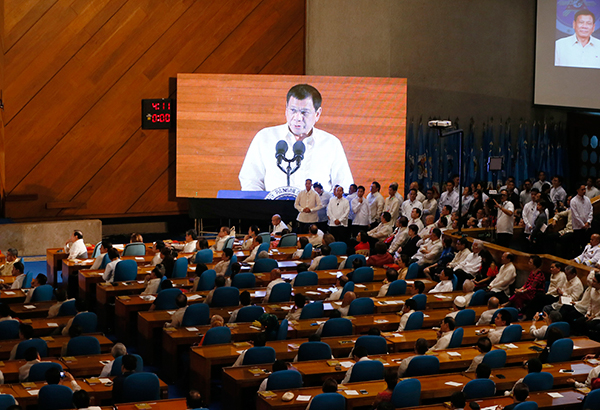CHED's De Vera: SUCs must join charter change debates

Commission on Higher Educationa Chairperson Prospero De Vera said that he would state universities and colleges to be more involved in the debates on charter change which is currently being discussed in Congress. AP Photo/Bullit Marquez, File
MANILA, Philippines — The Commission on Higher Education wants state universities and colleges to be more involved in the national debate on efforts to change the 1987 Constitution, the agency’'s officer in charge, Commissioner Prospero De Vera, said.
In an interview with Philstar.com, De Vera said that aside from the involvement of state higher education to discuss efforts that would pave the way for a federal form of government, he would like to ensure the smooth implementation of Republic Act 10931 — the Universal Access to Quality Tertiary Education Act — and the review of continuing agency programs to be the focus of his time as head of the commission.
He said that the government should mobilize the 112 taxpayer-funded higher education institutions, spread over 300 campuses nationwide, as these could provide venues for forums and seminars to educate the public on moves to amend the 1987 Constitution.
“You hit three things. You hit young people. You also use available facilities. And, the third, you bring in the expertise of professors in the universities. The experts don’t have to come from Manila all the time,” De Vera said.
READ: Duterte names Prospero de Vera III CHED officer-in-charge
He said that the University of the Philippines will launch in a couple of weeks a “big initiative” that will see its experts providing technical support to the charter change committee led by former Chief Justice Reynato Puno.
This will be UP's contribution to the discussion while other state universities could be used as venues for discussions, he said.
“The public state universities will be remiss if they will not take this opportunity,” he said.
Free college education program
Of the commission's current initiatives, De Vera said that the proper implementation of Republic Act 10931 remains CHED’s most important task.
The program, considered Duterte's “biggest social justice program” for higher education, aims to provide free college education to Filipino students in state universities and colleges in the country.
De Vera said that the law basically removed the fundamental “barrier” to higher education access in the Philippines which was cost.
“It’s a reframing of the education paradigm,” De Vera said.
Aside from free tuition and miscellaneous fees in SUCs, CHED would also further support in the form of short-term and long-term loan programs students who still would have financial difficulties in their studies.
He said that all components of the law, which has a budget of P40 billion this year, would be implemented by June.
To prevent an influx of students to SUCs, CHED would require SUCs and local universities and colleges to craft “thorough” admission and retention requirements.
He said that the implementing rules and regulations of the law would state that the fees of the students would be covered only during the duration of their program. Should they go beyond this, students would shoulder the costs, he said.
He also announced that poor students in both state and private universities would get an education subsidy, with those in SUCs getting P40,000 a year while those in private institutions would receive P60,000 a year.
“I have always told the private universities that they are important part of our education system, and I will make sure that they will not be disadvantaged by the law,” he said, adding that loan programs are available to both public and private HEI students.
READ: Duterte says he 'dismissed' Licuanan as CHED chair
- Latest
- Trending





























